In a landmark ruling on Tuesday, the International Court of Arbitration in Paris ordered the National Iranian Oil Company (NIOC) to pay $607.5 million to the UAE's Dana Gas Company. The fine relates to Iran’s failure to deliver on a 25-year energy deal first signed in 2001 between NIAC and Crescent Petroleum, an affiliate of the Sharjah-based Dana.
The gas supply deal, unilaterally terminated by the Ahmadinejad administration in 2005 just as deliveries were due to begin, was marred by disputes over pricing and alleged corruption. The payout ordered this week covers just the first eight and a half years, and in its statement on Thursday, Dana said a final decision on a "much larger claim" for the outstanding 16 and a half years, covering 2014 to 2030, was due to be issued in 2023.
What went wrong with the Crescent deal? Why did it fall apart, and how was the cancellation handled by Iran’s authorities? More importantly, how much public money has been wasted in the course of this sorry affair?
***
The decades-long dispute with Crescent Petroleum concerns NIOC’s non-supply of natural gas to the UAE. The contract was signed in 2001 and contravened by Iran since 2005, and the UAE first filed a complaint in 2009, but a full 12 years later the Islamic Republic – and by extension the people – have yet to feel the full weight of its repercussions.
It is, in sum, one of the strangest cases of mismanagement and structural inefficiency in the history of the Islamic Republic. Because of this, Iranian officials have bent over backwards not to provide accurate information about the case to the public, and many Iranian citizens are practically unaware of it.
The first ruling by the Court of Arbitration has now been finalized, and will see Iran fined hundreds of millions of dollars at a time of unprecedented economic crisis. The verdict was announced by Dana Gas Company in a message to its shareholders, with the firm adding that the so-far awarded sum of $607.5 million would “significantly bolster [its] balance sheet”.
NIOC and Dana Gas: What Went Wrong?
Under a contract signed in 2001, NIOC had agreed to export gas from the Salman oil and gas field – part of which it shares with the UAE – to Crescent for 25 years from 2005, via a pipeline that runs through the Persian Gulf.
The contract was signed under the Khatami administration but came under fire in 2005 when officials under Mahmoud Ahmadinejad questioned the low-seeming stated price of $18 per 1,000 m3, or $98.5 million annually. While its proponents continued to assure the UAE that deliveries would begin soon, critics decried it as corrupt. The contract was therefore never cancelled, prompting NIOC to rack up vast debts to Crescent.
Part of the issue around pricing rested on the fact that it was variable: the calculation method was meant be based on the price of crude oil over two periods, from 2005 to 2014 and from 2014 to 2030. The cost in the second period, it was agreed, had to be higher than in the first. It was Mohammad Reza Rahimi, the then-head of the National Audit Office (who with some irony would be jailed for corruption himself in 2015), that first told a news conference in Tehran that officials from the Ministry of Petroleum under Khatami had allowed the first round of pricing to fall so short of expectations. Under pressure from the National Audit Office, NIOC was forced to suspend the promised deliveries.
The Counter-Claim by Iran
Crescent duly began legal proceedings against NIOC in 2009 after four years of the company’s failure to meet its obligations. Instead of engaging, officials of the Islamic Republic cancelled the contract in 2010, saying that “due to corruption” the terms could not be met and the relevant officials had been prosecuted. The Islamic Republic then ignored a 2013 ruling in The Hague that found Iran liable for the losses incurred by Crescent.
Then in 2016, NIOC lodged a counter-claim at a court in London, arguing that since the contract had been “procured by corruption” it was void and not recognized in Iranian domestic law. The judge cited English law in his reading of the situation, and ruled that the contract was not void as neither NIOC nor Crescent had agreed that Iranian law should take precedent in disputes.
The new ruling by the Court of Arbitration comes after years of deliberation, but covers only the first half of the contract: the first eight and a half years of non-delivery. Two former cabinet ministers under Hassan Rouhani, ex-Minister of Industry Mohammad Reza Nematzadeh and Ali Jannati, the former Minister of Culture and Islamic Guidance, have estimated the likely overall cost to Iran at $15 billion: the equivalent of Iran's total oil revenue for the last three years.
The Scramble to Save Face – and the Hidden Role of Saeed Jalali
National Audit Office chief Mohammad Reza Rahimi, who was the first official to try to block the contract, became first vice president after 2009 during Ahmadinejad's second term. Unlike in the previous four years, the second administration was not opposed to the contract being implemented. Quite the opposite, in fact. The news website Emtedad has claimed the change in stance had come about due to pressure from the Intelligence Ministry, while ultraconservative daily Kayhan reported at the time that Interior Minister Ali Kordan was trying to entice Crescent’s board to get around the table and revive the deal.
The overtures continued even after the contract was formally cancelled in 2010. The original terms had even stated that if Iran was not satisfied with the pricing, it could refer the matter to the international courts, leaving the Islamic Republic with little to lose. But as Emtedad later reported, Saeed Jalili, then-secretary of the Supreme National Security Council, said at a crucial 2012 meeting that Islamic Republic should not implement the agreement. Even if the UAE made a complaint, he said, Iran wouldn’t suffer a great deal of damage.
A Headache for the Rouhani Administration
In 2013, Hassan Rouhani inherited the long-standing Crescent dispute. In what was perhaps not the wisest move, he reappointed Bijan Namdar Zanganeh as Minister of Oil. Zanganeh had held the same portfolio in the early 2000s, at the time the original contract was signed, and promptly brought back all the same directors as had been present at the time.
The allegations of corruption therefore started up anew, with critics pointing out that if any one of these individuals were prosecuted, the deal would be off. Rouhani’s government therefore spent eight full years under additional pressure from opponents, who naturally also later blamed him and his team for the ongoing stalemate with Crescent.
All the while, the case was growing more expensive. To make matters worse, in 2015 the Islamic Republic arrested Iranian-American businessman Siamak Namazi, the then-head of strategic planning at Crescent, and his father Baquer. The pair remain behind bars on spurious charges and are widely understood to be being held as hostages.
The full extent of the damage will not be determined until next year at the earliest. But for the past 20 years, the Crescent case has served as little other than a point of conflict between rival Iranian politicians: a game that has wreaked untold additional harm on public coffers, Iran’s image on the international stage, and the cumulative wealth of the Iranian people.
What Happened to the Gas Iran was Supposed to Export?
The gas from the Salman field allotted to the UAE was supposed to earn Iran an income for a quarter of a century. Instead, it will have been flared off: an activity that itself carries costs to both the Iranian economy and the environment. For whatever pitiable reason, the Islamic Republic wastes 14 billion cubic meters of natural gas every year, the majority of which has simply been burned.
The Crescent case is more than just a legal dispute. It symbolizes the Islamic Republic’s looting of the collective wealth of the Iranian people.
Related coverage:
Rouhani Fires Back at the Revolutionary Guards
Hardliners Slam Total Deal — But are Claims of Corruption and Further Sanctions Untrue?
Security Agents Jail Iranian-American
visit the accountability section
In this section of Iran Wire, you can contact the officials and launch your campaign for various problems




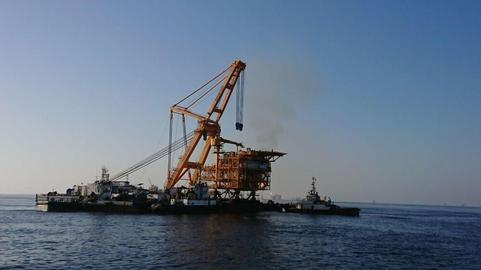
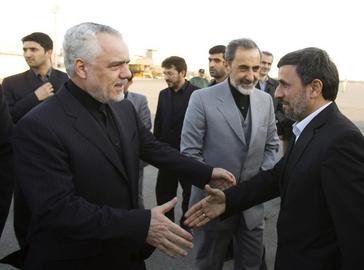
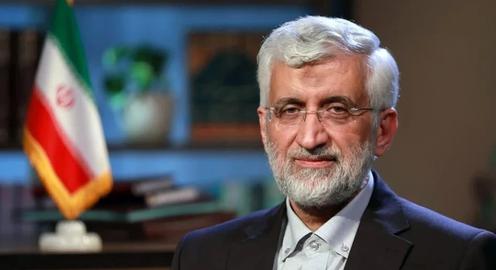
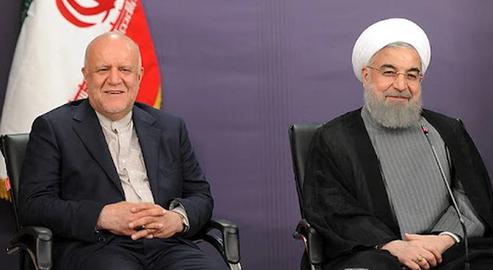
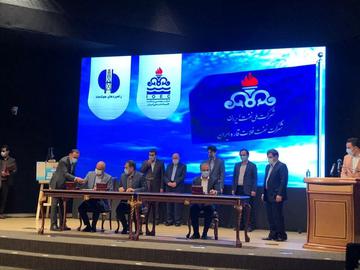




















comments